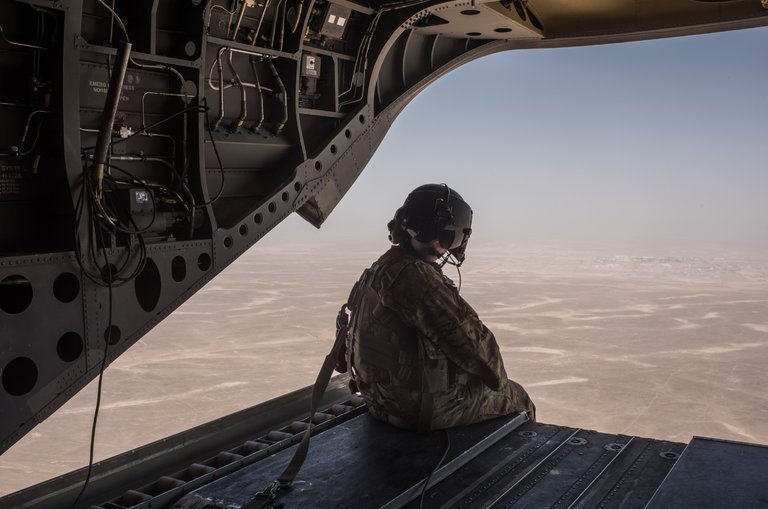Something extraordinary has happened in the capital of the world’s most powerful country: For the first time in more than 40 years, legislators in the United States formally questioned the American president’s unchallenged authority to launch a nuclear strike.
This is undoubtedly a reaction to the perceived unpredictability and rash temperament of the current inhabitant of the White House, Donald Trump. In August, Trump threatened North Korea with “fire and fury like the world has never seen.” In September, he casually suggested the United States might have to “totally destroy” it.
Trump or not, there is a new political mood to review America’s multiple wars. The US Congress promised to re-examine the authorisation it gave President George W. Bush in 2001 and 2002 to hunt down al-Qaeda in retaliation for 9/11. It has been used — and misused — many times over in the past 16 years.
As Barbara Lee, the only member of Congress to vote against the original war authorisation, recently pointed out it has been used in 14 countries at least 36 times. The war powers, called the Authorisation for Use of Military Force (AUMF), have come into play “in Iraq, Afghanistan and Syria, drone strikes in Yemen, bombing in Libya, indefinite detentions in Guantanamo Bay and warrantless wiretapping here at home,” Lee said.
Such a broad spectrum of actions was possible because the AUMF gives the US president carte blanche. He can target all “nations, organisations or persons he determines planned, authorised, committed or aided the terrorist attacks that occurred on September 11, 2001.”
Anything and everything becomes possible when a link is established (even if spuriously) to 9/11. Bush invaded Iraq on that pretext, mendaciously suggesting Saddam Hussein’s regime was linked to al-Qaeda. In October 2002, the AUMF cited Iraq as harbouring terrorists, including al-Qaeda.
Now, that 9/11 link may be used to tackle Iran, all within the remit of the AUMF. The Central Intelligence Agency, led by a Trump appointee and Republican Party politician, recently released a cache of documents that fortuitously appears to detail al-Qaeda leader Osama bin Laden’s alleged appreciation of Iranian support.
Then there are the wars in Syria and Yemen. Both have come alarmingly into focus for US politicians. Trump’s defence secretary, James Mattis, hinted the United States would maintain its military footprint in Syria long after the Islamic State (ISIS) is defeated there, even though hunting down 9/11-linked terrorists is the only justification allowed under the AUMF.
Former US President Barack Obama rationalised that ISIS was an offshoot of al-Qaeda and fighting it was consequently covered by the AUMF. However self-serving that might have been, Mattis’s apparent disinclination to call time on American military involvement in Syria certainly does not fit the AUMF.
As for Yemen, the US House of Representatives overwhelmingly backed a resolution that deems American military refuelling and intelligence support for the Saudi-led air war in Yemen as not authorised under the AUMF. The resolution was not binding but it signalled bipartisan unease with the US role in the nearly 3-year-old war. The Obama administration used the AUMF as a legal basis to carry out air strikes against al-Qaeda bases across Yemen.
When the Saudi-led coalition went to war against the Houthis, Obama agreed to support it, using the AUMF cover even though the targets were Houthi rather than elements of al-Qaeda. The Trump administration has ramped up engagement, even as international pressure grows because of the unfolding humanitarian crisis in Yemen.
The need to reassess the AUMF is urgent. The growing bipartisan consensus in Congress to do so is good news, if only because it shows that America’s politicians are beginning to realise the corrosive effects of a state of perpetual war. There is a deepening sense of futile overreach from years of widening and ever more dangerous operations in the so-called war on terror.
The Trump administration is pushing back against any move to check and control the executive’s right to make war. If nothing else, such hubris is precisely the reason this authority must be regulated and supervised.


